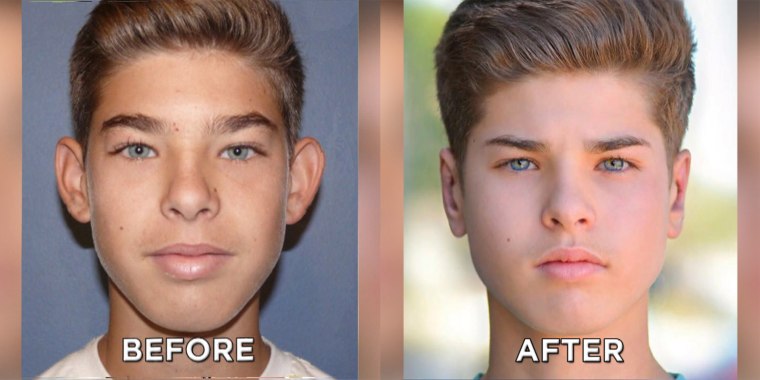Breast Augmentation Bellevue: Enhancing Your Self-confidence with All-natural Results
Breast Augmentation Bellevue: Enhancing Your Self-confidence with All-natural Results
Blog Article
A Deep Study the Usual Justifications for Looking For Plastic Surgery: Unboxing the Desire for Adjustment and Self-Improvement
The inspirations behind the quest of plastic surgery extend beyond plain aesthetic improvement, showing a nuanced interaction of societal assumptions, personal desires, and mental aspects. As individuals progressively seek to align themselves with dominating charm standards, it becomes imperative to analyze the underlying reasons that oblige them to make such considerable modifications. The impact of media representations and individual stories can not be neglected, as they form perceptions and wishes in profound ways. This examination triggers vital concerns concerning the ethical effects and future trajectories of cosmetic treatments, welcoming additional exploration right into the intricacies of self-improvement and identification.
Social Stress and Charm Criteria

The effect of these beauty ideals can be profound, instilling a feeling of insufficiency in those that do not adapt. As an outcome, many may look for plastic surgery as a method of aligning their appearance with these social assumptions. mommy makeover bellevue. This desire for conformity can come from a vast selection of inspirations, including the aspiration for boosted social condition, enhanced charming prospects, or enhanced expert chances
In addition, these pressures are not limited to certain demographics; they impact people across different ages, sexes, and backgrounds, highlighting the prevalent nature of appeal standards. This widespread influence elevates vital questions concerning the ethics of cosmetic surgery and the ramifications of societal standards on specific options. Ultimately, recognizing these pressures is important for fostering a much more inclusive meaning of elegance that celebrates variety.
Personal Experiences and Transformative Stories
Lots of people who go through plastic surgery report transformative experiences that expand beyond simple physical changes. For several, these treatments act as a catalyst for improved self-confidence and a renewed sense of identity. Clients often describe feeling freed from enduring instabilities, bring about boosted self-confidence in both specialist and personal worlds.
Take, for instance, the tale of a girl who went through breast augmentation after years of sensation self-conscious regarding her look. Post-surgery, she reported not just a newly found comfort in her body yet also a considerable renovation in her social life and profession chances. In a similar way, a middle-aged guy who picked to undertake a facelift shared how the treatment rejuvenated his expectation on life, motivating him to seek new rate of interests and relationships.
These personal stories highlight the profound influence cosmetic surgery can have on individuals' lives. As they welcome their changed selves, many find empowerment in their choices, often using their experiences to motivate others considering comparable journeys. Eventually, these transformative stories highlight the multifaceted factors people seek cosmetic surgical procedure, linking personal development with the search of aesthetic improvement.
Emotional Factors Behind Plastic Surgery
Various psychological variables add to the choice to go through cosmetic surgery, reflecting much deeper mental and emotional wellness factors to consider. People frequently go after medical improvements as a means to resolve sensations of inadequacy, reduced self-confidence, or discontentment with their appearance. These mental motivations can be rooted in previous experiences, social contrasts, or personal aspirations.
Body image distortion is a prevalent concern, where individuals perceive their physical characteristics in an exaggeratedly negative light. This distortion can lead to compulsive thoughts about viewed defects, triggering the need for medical modification as an option - mommy makeover bellevue. Additionally, the pursuit of excellence and societal stress can amplify these sensations, pressing individuals towards aesthetic official statement procedures in hopes of accomplishing an idealized variation of themselves
Moreover, the principle of self-improvement plays a critical function. Numerous people see plastic surgery as a path to improve their high quality of life, believing that improved look will bring about enhanced social acceptance, far better relationships, or boosted job possibilities. Ultimately, the mental variables behind cosmetic surgical procedure highlight the intricate interplay between private self-perception and external influences, revealing the diverse nature of the index need for modification.

The Role of Media in Perception
In today's society, media plays a crucial role fit perceptions of appeal and self-regard. Through various systems-- social media sites, television, and advertising and marketing-- idyllic requirements of elegance are often disseminated, affecting individual goals and self-image. These representations often stress slim meanings of attractiveness, predominantly featuring younger, slim, and digitally enhanced images, which can develop unrealistic benchmarks for people aiming to adhere.
The influence of media is further exacerbated by the pervasive nature of social media sites, where users are bombarded with curated content that highlights cosmetic improvements, recommending a culture of comparison. This constant exposure can bring about sensations of insufficiency among customers, triggering them to consider cosmetic surgical treatment as a method of accomplishing the perceived suitable. Research indicates that people who engage with these media depictions are more probable to reveal frustration with their look, strengthening the desire for surgical treatments.
Moreover, the normalization of plastic surgery in media stories can desensitize target markets, framing such procedures as commonplace and even essential for social acceptance. Therefore, the media's representation of beauty not only affects private options regarding cosmetic surgery but likewise contributes to a wider social discussion about self-worth and identity.
Future fads and ethical considerations
Amid the growing popularity of cosmetic surgical treatment, ethical factors to consider surrounding the technique have become progressively popular. As the need for treatments climbs, so as well do concerns concerning educated authorization, the psychological motivations of clients, and the potential for exploitation by specialists. It is essential for practitioners to guarantee that people fully recognize the risks and advantages, along with the implications of their options, to foster a liable method to cosmetic improvements.
Furthermore, the impact of social media sites and beauty requirements questions regarding the effect on mental health, particularly amongst prone populations. As awareness of body photo problems expands, moral method necessitates a mindful examination of the inspirations behind medical interventions. Doctors have to balance client wishes with honest responsibility, making certain that decisions are rooted in authentic self-improvement rather than societal stress.

Conclusion
In conclusion, the search of cosmetic surgical treatment is affected by a confluence of social stress, personal experiences, and psychological aspects. The wish for positioning with dominating elegance standards, coupled with the capacity for transformative outcomes, underscores the complicated motivations driving people towards these procedures. In addition, the role of media in shaping perceptions of elegance can not be understated. As honest considerations develop, future patterns in plastic surgery will likely mirror recurring social discussions bordering self-improvement and specific identity.
Often, social pressures and prevailing elegance requirements play a considerable role in people' choices to go after cosmetic surgical procedure. Inevitably, these transformative tales highlight the diverse factors people look for cosmetic surgery, intertwining personal growth with the search of visual improvement.
Several people see cosmetic surgical procedure as a path to improve their top quality of life, believing that improved appearance will certainly lead to enhanced social acceptance, better relationships, or improved profession chances. Ultimately, the psychological aspects behind cosmetic surgical procedure underscore the complex interplay in between individual self-perception and outside impacts, exposing the diverse nature of the desire for change.
As honest considerations advance, future trends in cosmetic surgical procedure will likely show recurring societal dialogues surrounding self-improvement and individual identity.
Report this page